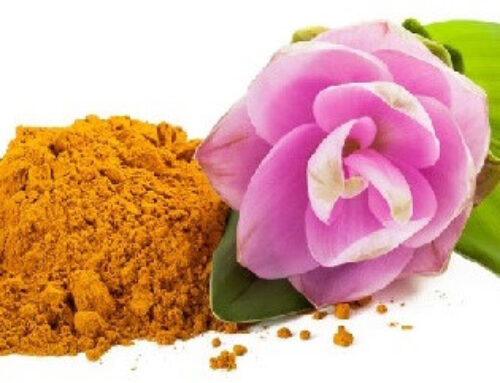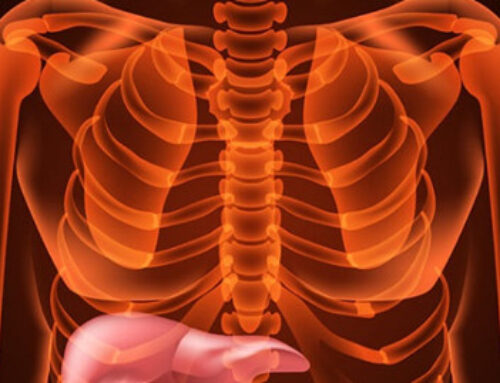In this article I explore our adrenal glands, an often forgotten part of our body that regulates stress hormones, body weight and fatigue, and how best to care for them with therapeutic supplements and lifestyle changes.
Here it is the beginning of January, time to make our New Year’s resolutions. I look forward to this time of year to make certain commitments to myself and to my community. Do I always keep my resolutions? Not always, but it is still a good time to push the reset button. Some resolutions may stick and some may not, but it is always good to make the attempt to better ourselves.
If you have not made a resolution yet, why not consider what you can do to make your health a higher priority? A good alternative to the typical first-of-the-year-detox is an adrenal recharge. Though detoxing is not a bad idea, maybe it is time to consider doing something to support and improve the function of your humble adrenal glands. Your health will greatly improve!!
Most of us have no idea what the adrenals do for us, let alone where they are in our body, but these tiny glands keep us alive. They play a role in many important functions in the body; their biggest role being, to manufacture hormones.
Could you use an adrenal recharge? Maybe so—do you struggle with low energy, constant fatigue or feel “tired but wired”, blue moods, depression, sleep issues, low sex drive, irritability and anxiety, weight gain under stress, a short fuse, waking up tired even after a good night’s sleep? There are many signs of adrenal fatigue, but these are some common indicators.
A quick primer
Your adrenal glands are about the size of walnuts and sit atop your kidneys. They are small but very powerful. Each gland has an outer layer, the adrenal cortex, which produces specific types of hormones called glucocorticoids. Among these hormones is cortisol, our stress hormone; aldosterone, which works with the kidneys to regulate our blood sugar and our blood pressure; and sex hormones, which speak for themselves. The adrenal medulla, or inner layer, produces other hormones, namely adrenaline, noradrenaline and dopamine, your brain’s feel-good hormones and neurotransmitters.
When we are under stress, our adrenals come into play. I am referring to any stress, as your body doesn’t differentiate; stress is stress. When a stressful event occurs, our adrenal glands produce cortisol, which is both healing and destructive. Cortisol plays an important role in our immune and stress responses and helps to control inflammation. It is also used in blood pressure and blood sugar regulation.
But, when we have too much cortisol, it becomes very destructive because it is a catabolic hormone, meaning it breaks down muscle tissue to increase blood levels of glucose. Our bodies can turn muscle tissue into glucose when it is needed for our fight or flight response. This can make it very hard for constantly stressed individuals to lose weight. They are burning their muscle tissue, which keeps their blood sugar high, promoting weight gain and contributing to diabetes and heart disease. Not good!
Also, when our cortisol levels are chronically high, it causes inflammation in the lining of our blood vessels, constricting the blood vessels and driving up blood pressure, significantly increasing risk of heart attack and stroke.
When we are in a constant state of stress, our sex hormones are not being manufactured, the hormonal precursors used to make sex hormones are instead used to make more cortisol and our sex drive is diminished. Reproduction is not a priority when we are under stress; survival becomes the priority. Digestion becomes a low priority as well, as digesting food comes second to the fight or flight response. Over time, digestion can become chronically compromised, leading to many other health issues.
Aldosterone is the hormone that regulates potassium and sodium, both minerals used for blood pressure regulation. Aldosterone also plays a role in blood sugar control. Too much stress and we can see our blood sugar levels stay elevated, which again can lead to weight gain and diabetes.
Salt cravings
When I suspect adrenal issues, I will ask my clients if they crave salt, because with adrenal fatigue there is a loss of salt as well as potassium through the kidneys. This will cause the body to crave salt. We often see people with adrenal fatigue suffering from low libido, weight gain and fatigue; this explains why.
The catecholamine hormones produced in the medulla portion of the adrenals (adrenaline and nor-adrenaline) play a role in the fight or flight response. When a threat is perceived, adrenaline is released. This causes an increase in muscle strength, blood pressure and sugar metabolism, and causes the heart rate to increase, getting us ready to act.
Noradrenaline increases arousal, alertness and vigilance. It will focus attention and enhance retrieval of stored memory. But, it can also increase restlessness and anxiety. Dopamine is a precursor to both adrenaline and noradrenaline and it also plays a role in the balance of aldosterone, which regulates blood pressure.
Our modern lifestyle is the reason there is an epidemic problem with adrenal dysfunction. Our ancestors never had the stressors we deal with on a daily basis. Our adrenals can take a hit every time we watch the news (which nowadays seems to be more disturbing than ever), every time we drive our car and someone cuts us off, or every time we have a disagreement with another person. When our bodies are low in important nutrients, including zinc and other minerals, vitamin C, healthy dietary fats and cholesterol, and when we consume foods that are higher in sugar than our body is able to handle, the adrenals take the biggest hit. Over time, our adrenal glands become tired and dysfunctional, as do we.
Conventional medicine does not recognize varying degrees of adrenal fatigue, they see only functioning and non-functioning. I see what is in between and encourage people to work to repair their adrenal glands before they become permanently damaged.
What can we do?
Using good sense about how hard we work and how hard we play is a good place to start. Most of us know when we are over-worked, but do we pay attention to over-exercising? Not always. Pay attention to how you feel when you are finished exercising. You should feel invigorated, not exhausted. Cut back on your routine if you need to. Create balance by getting plenty of sleep and going to bed at a reasonable hour. Consistently staying up late can throw off our circadian rhythms, which work in sync with our adrenal glands. Take up meditation to learn how to calm your mind and control stress. Try yoga, it really helps!
There are some amazing herbs called adaptogens that can be very helpful in supporting tired and exhausted adrenal glands. These have been used in Ayurvedic and Chinese medicine for centuries (we can all learn a thing or two from these ancient cultures). Though all of the adaptogens listed below have multiple functions, to be classified as adaptogens they must be considered safe and non-toxic, have broad benefits, and bring balance to the body. Here, I will explain some of the more common adaptogens and a few of their uses.
My favorite is holy basil, or tulsi. It is anti-inflammatory and anti-microbial and it has been used for 3,000 years. Schizandra berry, used as a tonic, protects the liver and increases memory. Ashwaganda is an antioxidant that is good for the cardiovascular, nervous, endocrine and immune systems. Licorice root can affect blood pressure so it should be used with the guidance of a medical doctor, but it can also increase energy and endurance and enhance the immune system. American and Chinese ginseng is anti-cancer, anti-fatigue and anti-inflammatory, the most common of the adaptogens, and has been used in diabetes treatment. Astragalus is anti-bacterial and anti-inflammatory. It strengthens the immune system and has been used for thousands of years in China. Bacopa has the ability to regulate cortisol during times of stress. Cordyceps enhances immune function and reduces symptoms of depression. Reishi mushroom can help in the treatment of fatigue, respiratory issues, cancer, heart disease, liver problems, and is an immune booster. Amla (Indian gooseberry) is high in vitamin C, which the adrenals need high amounts of to heal. Rhodiola has a large variety of uses, including helping to balance blood sugar, increasing fertility and strengthening the immune system. There are many more adaptogens, far too many to list, but see the Recommended Reading section at the bottom of this article if you would like more information.
Adaptogens can be purchased from your local health food store or online, and they are very safe to use for improving your adrenal health. They can be taken as a tincture, caps, or sometimes as a tea. But the best part is that they really work. We tend to want to classify certain organs and glands as being more important than others, but in reality they are all important and they all work together. Adrenal glands need loving support now more than ever, as the standard American diet and our habit to over-work ourselves is quite problematic to our health.
This year, I hope you will feel the real importance of taking care of your physical body. I read once that a sign of true spiritual evolution is doing what is necessary to take care of your physical body and health.
A healthy, happy new year to you all!
Recommended reading:
- Winston David, Maimes Steven, Adaptogens: Herbs for Strength, Stamina, and Stress Relief. Rochester, VT: Healing Arts Press; 2007.
- Yance Donald R (CN, MH, RH/AGH), Adaptogens in Medical Herbalism: Elite Herbs and Natural Compounds for Mastering Stress, Aging, and Chronic Disease. Rochester, VT: Healing Arts Press; 2013.










